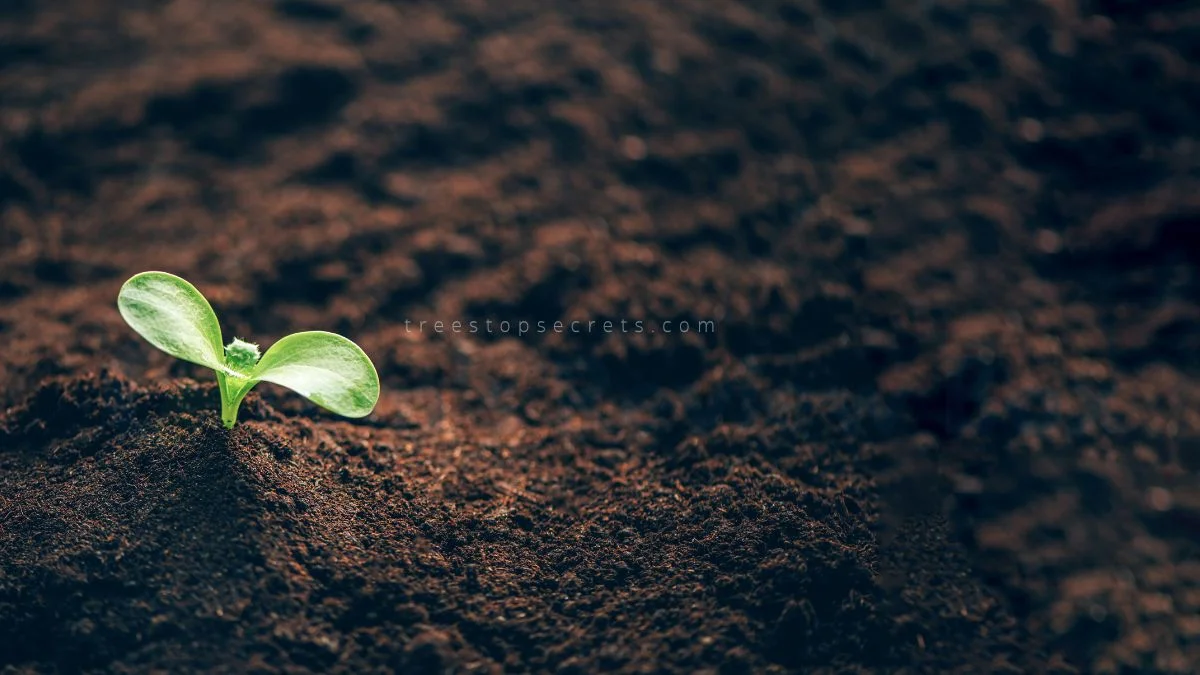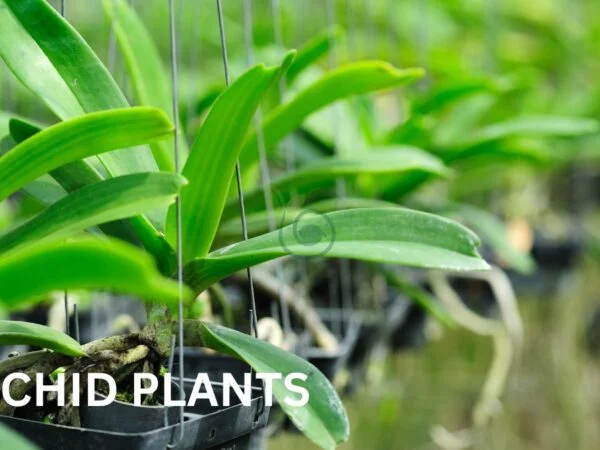Exploring the world of citrus plants soil unveils a rich history intertwined with agricultural practices. Citrus plants, known for their vibrant fruits, thrive in specific soil conditions that have evolved over time. Understanding the historical context of citrus cultivation provides valuable insights into optimizing soil health for these plants. By delving into the past, we can unlock secrets to nurturing robust citrus trees and enhancing fruit production. Join us on a journey through time as we demystify the relationship between citrus plants and soil composition.
Key Takeaways
- Proper soil is crucial for the health of citrus plants, impacting their growth and fruit production.
- Select a well-draining soil mix with good aeration to ensure optimal root health for citrus plants.
- Understand the importance of maintaining proper soil conditions, including pH levels and nutrient content, for citrus plants to thrive.
- Plant citrus trees correctly by ensuring proper depth and spacing to promote healthy root development.
- Growing citrus in containers requires specific soil considerations to provide adequate drainage and nutrients for confined roots.
- Regularly maintain healthy soil by mulching, fertilizing, and monitoring for pests or diseases to support citrus plant growth.
The Importance of Soil for Citrus Plants
Soil and Citrus Health
Maintain soil pH levels within the ideal range of 6.0 to 7.5 for optimal citrus health. Test the soil regularly using a pH meter to ensure it's suitable for citrus growth. Overwatering can harm citrus plants, so monitor soil moisture levels consistently.
Implement proper drainage techniques in the soil to prevent root rot, a common issue in citrus plants. Ensure that water can flow freely through the soil to avoid waterlogged conditions that may lead to root diseases.
Soil Composition Basics
Understanding the basics of soil composition is crucial for successful citrus tree cultivation. Opt for soils with a loamy or sandy loam texture, as they provide good drainage and aeration essential for citrus growth. These soils also retain enough moisture without becoming waterlogged.
Avoid using clay soil for planting citrus trees due to its poor aeration and tendency to retain excess water, which can suffocate the roots and cause damage. Clay soils are not suitable for citrus plants as they impede root development and overall growth.
Container vs Ground Planting
Differentiate between planting citrus trees in containers versus directly in the ground based on your specific needs and circumstances. When opting for container planting, ensure the use of well-draining soil and containers equipped with adequate drainage holes to prevent waterlogging.
Consider factors such as space limitations and mobility when deciding between container and ground planting methods for citrus trees. Container planting offers flexibility in terms of moving the plant around, while ground planting provides more room for root expansion and potentially larger tree growth.
Selecting the Right Soil Mix
Ideal Soil Characteristics
When it comes to citrus tree growth, prioritize soil with good aeration and water retention. Opt for nutrient-rich soil to support healthy citrus growth. The ideal soil should provide a balance of moisture and nutrients for optimal development.
Amendments and Fertilizers
Amendments and fertilizers play a crucial role in supporting citrus trees. Use nitrogenous fertilizer to boost fruit production. Incorporate organic matter like dried animal manure into the soil for enrichment. These additions ensure that the soil remains fertile and provides essential nutrients for the plants.
DIY Mixes vs Store-bought
Compare the benefits of DIY soil mixes with store-bought options for your citrus plants. All-in-One Kits offer convenience in preparing suitable soil mixes. Evaluate the cost-effectiveness and quality of different options available in stores or through DIY methods. Consider factors like nutrient content, pH levels, and drainage capabilities when making your choice.
Understanding Proper Soil Conditions
pH Levels
Maintaining optimal pH levels is crucial for citrus plants to thrive. Regularly testing soil pH helps in ensuring the right acidity levels. Adjusting pH with appropriate products promotes healthy growth.
Drainage and Aeration
Healthy citrus growth depends on good drainage and aeration. Adequate drainage holes in containers prevent waterlogging, which can harm roots. Well-draining soil is essential to avoid suffocating the roots.
Nutrient Requirements
Understanding the nutrient needs of citrus trees is vital for their health. Citrus trees require nitrogenous fertilizer for fruit development. Micronutrient deficiencies should be addressed through supplements when necessary.
Planting Citrus Trees Correctly
Step-by-step Guide
Plant citrus trees correctly by following a simple step-by-step guide. Ensure proper spacing and depth to allow for healthy root development. Incorporate organic matter into the soil to provide essential nutrients for growth.
Timing and Season
Consider timing and seasonal factors when planting citrus trees. Optimal growth is achieved when planting in early spring. Avoid planting during extreme weather conditions to prevent stress on the trees.
Initial Care Post-planting
Provide essential care post-planting to help the citrus trees establish themselves. Regularly water newly planted trees to support root development and overall growth. Monitor closely for any signs of stress and adjust care practices accordingly.
Growing Citrus in Containers
Choosing Containers
When growing citrus in containers, choose suitable pots that allow for proper root development. Consider the container size based on the tree's growth potential and maturity. Ensure the containers have adequate drainage holes to prevent waterlogging, which can lead to root rot.
- Pros: Easy to move around, ideal for small spaces.
- Cons: May require more frequent watering and fertilizing.
Repotting Tips
To promote healthy growth, follow these repotting tips for potted citrus trees. Repot the trees when their roots outgrow the current container to prevent becoming root-bound. Refresh the potting soil during repotting to provide essential nutrients for optimal growth.
- Choose a larger container when repotting.
- Loosen the roots gently before placing them in the new pot.
- Water thoroughly after repotting to help the tree adjust.
Watering Techniques
Mastering watering techniques is crucial for the success of potted citrus trees. Container-grown citrus plants require more frequent watering compared to those planted in the ground. Allow the soil to partially dry out between watering sessions to prevent overwatering, which can lead to root issues.
- Overwatering can cause yellowing leaves and root rot.
- Underwatering may result in stunted growth and fruit drop.
Maintaining Healthy Soil
Regular Soil Testing
Regularly testing soil for citrus trees is crucial for their health and productivity. By testing soil pH and nutrient levels periodically, you can ensure optimal conditions for growth. Adjust fertilization and amendments based on test results to provide the necessary nutrients.
Mulching and Composting
Implementing mulching and composting practices around citrus trees can significantly benefit their overall health. Mulch helps retain soil moisture, reducing water loss and suppressing weed growth. Composting organic matter enriches the soil, enhancing microbial activity that supports tree growth.
Monitoring Soil Moisture
Monitoring soil moisture levels is essential to prevent overwatering, which can harm citrus trees. Utilize a soil moisture meter for accurate assessment of moisture content in the soil. Adjust your watering schedule according to the readings to maintain optimal moisture levels for healthy tree growth.
Common Soil Issues and Solutions
Overwatering and Root Rot
Overwatering citrus plants can lead to root rot, which manifests as yellowing leaves and wilting. Address this promptly by adjusting watering frequency. Ensure good drainage to prevent root suffocation.
Nutrient Deficiencies
Identify nutrient deficiencies by observing symptoms like leaf discoloration or stunted growth in citrus trees. Combat deficiencies with targeted fertilizers and soil amendments. Regularly monitor tree health for early detection and treatment.
Pest and Disease Prevention
Prevent pests and diseases in citrus trees by implementing proactive strategies. Opt for natural pest control methods to minimize chemical usage. Stay vigilant by monitoring tree health for any signs of infestation or disease.
The Lifecycle of Citrus Plants
From Seedling to Fruit-bearing
Citrus plants begin as small seedlings, gradually growing into mature trees bearing fruits. Throughout this process, consistent care and monitoring are crucial. It's essential to track the growth journey from a tiny seedling to a fully fruit-bearing tree. Understand the timeframes involved in citrus tree maturity, which can vary depending on the specific type of citrus plant. Providing adequate water, sunlight, and nutrients is vital for healthy growth.
- Monitor the growth journey
- Understand timeframes for maturity
- Provide consistent care
Harvesting Timeframes
When it comes to harvesting citrus fruits, timing is key. Wait until the fruits are fully ripe before harvesting them for the best flavor. This waiting period aligns with the tree's maturity stage, ensuring that you enjoy high-quality fruits. Harvesting too early may result in underdeveloped or sour fruits, while waiting too long risks overripeness.
- Wait for full ripeness
- Enjoy high-quality fruits
- Align with tree maturity
Summary
You've learned the crucial role of soil in nurturing healthy citrus plants, from selecting the right soil mix to understanding proper soil conditions and planting techniques. Maintaining healthy soil is key to ensuring your citrus trees thrive, whether in the ground or containers. By addressing common soil issues and following the lifecycle of citrus plants, you can enhance the growth and productivity of your citrus garden.
To optimize your citrus plant's health and yield, remember to implement the insights shared in this guide. Regularly check your soil quality, provide appropriate nutrients, and address any issues promptly. By following these practices, you'll enjoy a flourishing citrus garden that rewards you with vibrant fruits. Take action today to create an ideal environment for your citrus plants to flourish and yield bountiful harvests.
Frequently Asked Questions
How does soil quality affect the growth of citrus plants?
l quality directly impacts the growth of citrus plants by influencing nutrient availability, drainage, and root development. Healthy soil ensures proper nourishment and support for robust citrus tree growth.
What type of soil mix is best for growing citrus plants?
A well-draining soil mix with a slightly acidic pH level (around 6.0 to 7.0) is ideal for growing citrus plants. Consider using a blend of potting soil, perlite, and sand to provide adequate drainage and aeration.
What are the key factors to consider when planting citrus trees?
When planting citrus trees, ensure the location receives ample sunlight, has well-draining soil, and is protected from strong winds. Plant at the correct depth, water thoroughly after planting, and avoid compacting the soil around the roots.
Can citrus plants be grown in containers?
Yes, citrus plants can thrive in containers as long as they have proper drainage holes, a suitable potting mix, regular watering, and sufficient sunlight. Container-grown citrus trees offer flexibility in terms of placement and are perfect for smaller spaces.
How can I maintain healthy soil for my citrus plants?
To maintain healthy soil for your citrus plants, regularly monitor moisture levels, provide appropriate fertilization based on plant needs, mulch to retain moisture and suppress weeds, and periodically check for any signs of nutrient deficiencies or pH imbalance.
Image Source: Paid image from CANVA




